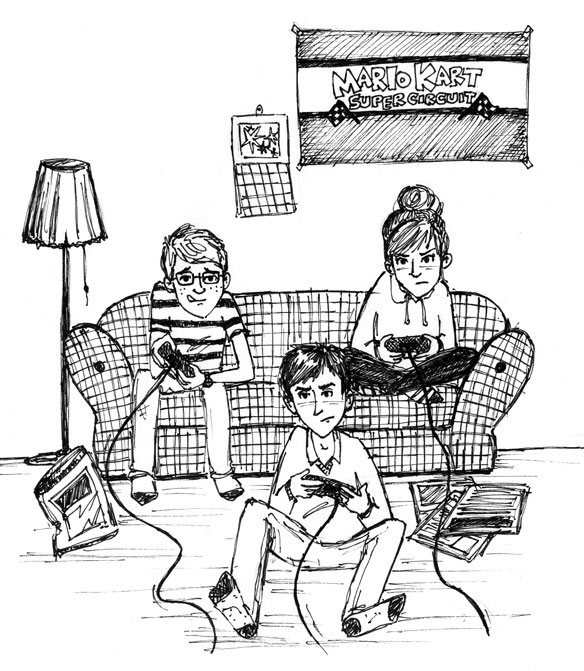
Gaming communities must be inclusive and welcoming
Pong was released in 1972. Since then, video games have become a big part of North American culture.
Spending an afternoon relaxing and playing games is as normal as watching a movie or reading a book. Owning a gaming console isn’t just for teenage boys anymore. Video games are a normal fixture of modern homes.
Video games offer the communal experience that more conventional forms of media don’t. It’s rare to play video games with your friends without inside jokes and some good-natured teasing.
Recently, video games have been under scrutiny in the media. A group of people under the banner of GamerGate have used purported concerns with gaming journalism as an excuse to harass women. But video games have the possibility to be more than this.
Books are a solitary, immersive experience. Like movies, video games can be enjoyed in different ways. They can be an immersive experience enjoyed in silence or a raucous time with your friends. They’re the rare form of media that’s immersive enough to distract you from your midterms and casual enough to be enjoyed in large groups.
You can usually tell what era someone grew up in based on the games they feel nostalgic about. For our generation, it’s games like Mario Kart and Super Smash Bros. Playing these games evokes the comfortable, simple atmosphere of childhood. Video games are relaxing for this reason alone.
When I was growing up, video games were the only way you could get my siblings to play together without broken furniture. At the Gauntlet, you can usually find a group of people sitting on the couch between lectures and labs joking around while playing an old Nintendo game.
I still unwind by playing the same games that I did when I was eight. These games have become part of many people’s lives.
Gaming isn’t inherently bad, but it’s true that video games have their flaws. Like any media industry, there’s still problems with representation and discrimination.
And if you want to pick a fight with the video game industry, you’ve got a lot of problems to choose from. There’s an overwhelming number of violent games. The industry has massive problems with racism and sexism. And recently, a group of people loosely associated with the gaming community sent death threats to women for little more than having the audacity to try to be a part of something they enjoy.
But in a time when people behind bigoted groups like GamerGate act like games are only for a select group of people, it’s important to remember that video games are for everyone.
Anyone can install Candy Crush Saga and waste away an afternoon. Anyone can pick up a controller and learn to play Mario Kart.
New kinds of games open the medium to an entirely new audience and games we loved as kids are now used to strengthen friendships in our adult lives.
Almost everyone has had some experience throwing green shells and bananas at your friends while you race around a track, or launching your friend off a platform with a well-timed falcon punch. Just as A Tale of Two Cities is still popular, so is Pokémon.
When a new Super Smash Bros. comes out, people still get excited. Part of the reason is because it’s a good game. Part of it is the hype. But another part of our connection to these games stems from the positive environments and experiences they create.
Gaming is an easy and almost instant way to connect with others. A few games of Super Smash Bros. can turn complete strangers into fast friends. While video games won’t become the centre of our social lives anytime soon, they’re a good way to socialize with others without alcohol or awkward ice-breaker games.
Knee-jerk reactions like GamerGate are partially a reaction to the expansion of the gaming community. The video game industry now includes the voices and contributions of women, a group who were previously unheard. But vitriol towards women in gaming is ruining what video games have the potential to do.
Video games can establish groups of people excited about creating and consuming a kind of media. We have the potential to expand the video game community. By ensuring that more people have positive experiences with gaming, we can share the nostalgic joy that we grew up with. That can only be a good thing.
Connor Sadler, Gauntlet Editorial Board
